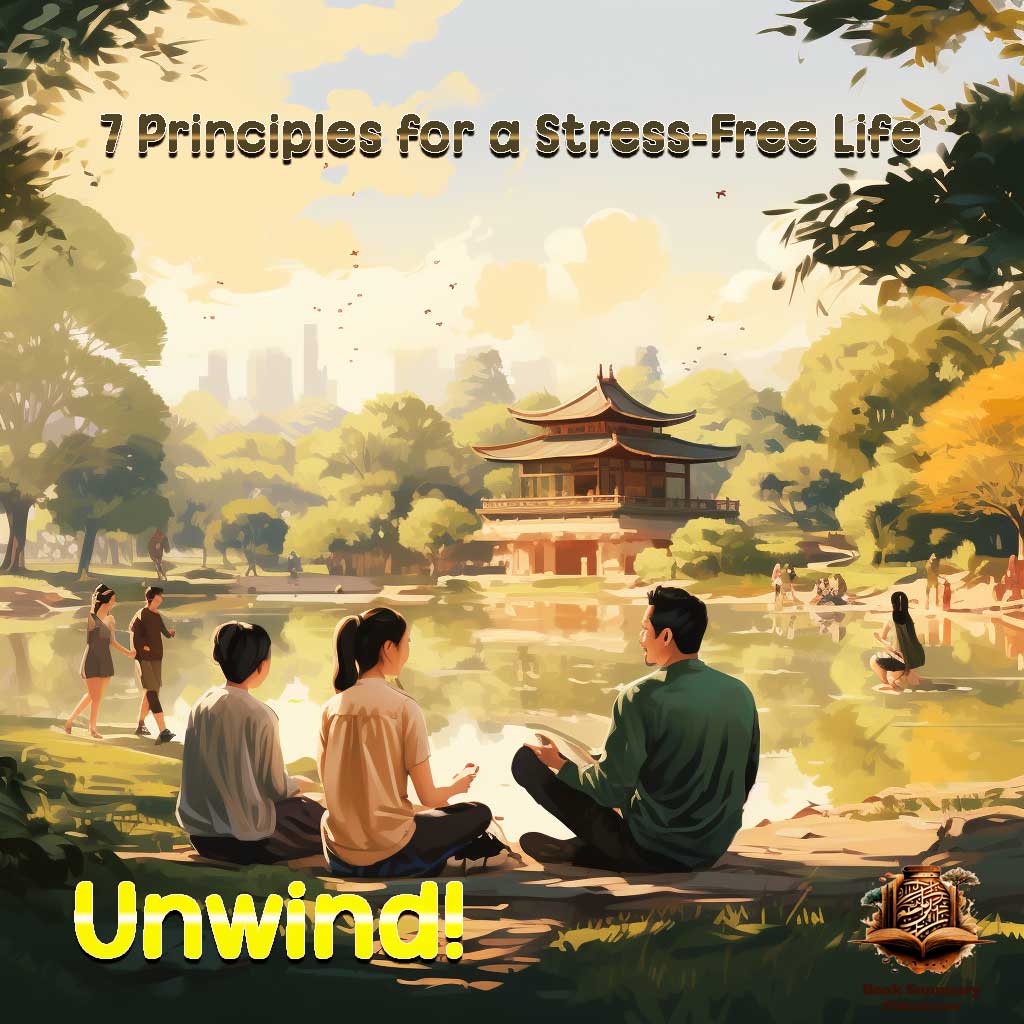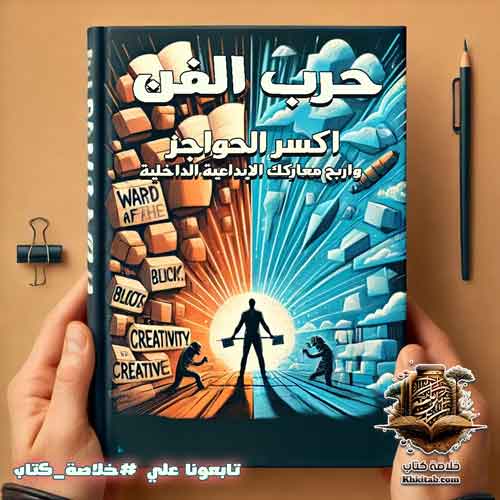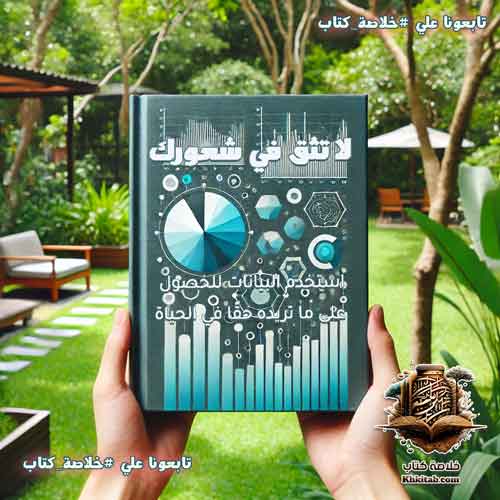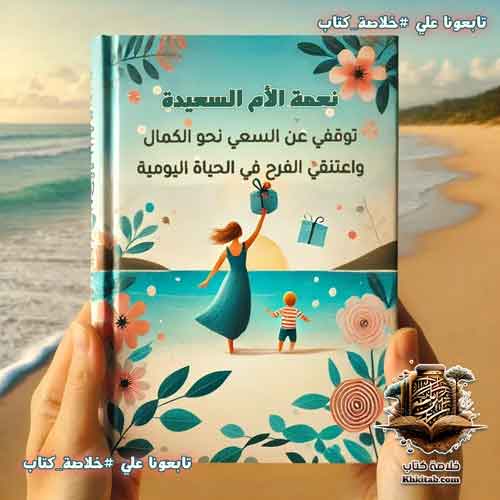Unwind!: 7 Principles for a Stress-Free Life Book Summary

In today’s fast-paced world filled with relentless challenges and pressures, finding effective ways to deal with daily stress and anxiety becomes paramount. This is where “Unwind!: 7 Principles for a Stress-Free Life” comes into play. Authored by Dr. Michael Olpin, Dr. Saman Bahktiar, and Jordan Garn, this book offers practical strategies and techniques to confront and transcend stress. Not only do the authors delve deep into the causes of stress and its implications for mental and physical health, but they also present innovative principles that can be applied in daily life to ensure a calmer and more serene existence. If you’re seeking tangible guidance to overcome life’s pressures, this book serves as your ideal manual.
How Does “Unwind!: 7 Principles for a Stress-Free Life” Illuminate the Dual Nature of Stress?
In the modern era, the pervasive presence of stress has undeniably made it a shared global experience. The book “Unwind!: 7 Principles for a Stress-Free Life” takes a comprehensive dive into the multifaceted realm of stress, striving to offer its readers a holistic grasp of its intricacies. A central theme elucidated in the book revolves around the nuanced differentiation between eustress and distress.
The term ‘stress’ often carries a negative connotation. However, not all stress is harmful. Eustress, or positive stress, acts as a catalyst that propels us forward. It’s the excitement you feel before a first date, the adrenaline during a competitive game, or the surge of motivation when faced with a tight deadline. These experiences, though tense, can amplify our performances, sharpen our focus, and provide a zest for life. The book emphasizes the physiological benefits of eustress, such as improved brain function, enhanced immunity, and an overall boost in vitality.
Conversely, distress is the strain that chips away at our well-being. This negative stress manifests when demands consistently outstrip our coping mechanisms, leading to burnout, anxiety, and a plethora of health issues. “Unwind!” delves deep into the physiological repercussions of prolonged distress, including weakened immune responses, the onset of chronic diseases, and hormonal imbalances. Psychologically, distress can erode one’s self-esteem, diminish cognitive functions, and in some cases, lead to depressive states.
“Unwind!: 7 Principles for a Stress-Free Life” serves as a guiding light, offering strategies to not only understand the dual nature of stress but also to harness eustress effectively while mitigating the damages of distress. Recognizing this dichotomy is the initial step towards a balanced and fulfilling life. Through this book, readers are equipped with the knowledge and tools to navigate life’s ebbs and flows with resilience and poise.
Our Facebook Page – Book Summary
How Does “Unwind!: 7 Principles for a Stress-Free Life” Empower Readers Through the “Mind Over Matter” Approach?
In an age where external factors constantly bombard our lives, the book “Unwind!: 7 Principles for a Stress-Free Life” sheds light on the profound influence of internal resilience, particularly emphasizing the “Mind Over Matter” principle. A deeply empowering approach, this principle underscores that our perceptions and mindset play a pivotal role in shaping our reactions to various situations.
Every individual faces challenges, but it’s our mental approach towards these challenges that truly determines the outcome. For instance, two individuals might face the exact same obstacle; one sees it as an insurmountable threat, while the other views it as an opportunity for growth. The book argues that it’s not necessarily the external events that cause stress, but rather our internal responses to them. This is where the power of perception comes into play.
“Unwind!” delves into the idea that by altering our mindset and modifying our perceptions, we can transform our reactions and, in turn, our entire experience. Stress, in many cases, is not a product of the situation, but a result of our interpretation of that situation. By mastering our mind and cultivating a proactive rather than reactive mindset, we can navigate through life’s adversities with greater ease and composure.
Furthermore, the book offers actionable techniques and strategies to shift from a fixed mindset, which views situations as static and unchangeable, to a growth mindset, which sees challenges as opportunities for development. Embracing this “Mind Over Matter” perspective can be a game-changer, providing readers with the tools to not just cope, but thrive amidst life’s complexities.
Life Sciences & Medicine – Book Summary (khkitab.com)
How Does “Unwind!: 7 Principles for a Stress-Free Life” Advocate for the Importance of Living in the Present Moment?
The journey to a stress-free life often necessitates a profound shift in perspective, and “Unwind!: 7 Principles for a Stress-Free Life” takes readers on a transformative exploration of this idea, particularly focusing on the principle of “Living in the Present.” A pivotal concept woven throughout the book, living in the moment, or mindfulness, underscores that a significant source of our daily stress is often tethered to ruminating over past events or agonizing about the uncertainties of the future.
By drawing attention to the present moment, the book elucidates how individuals can anchor themselves in the now, fostering a greater sense of peace and clarity. Often, our minds are scattered, preoccupied with past regrets or future anxieties, preventing us from fully experiencing and appreciating the present. This not only dilutes the richness of our current experiences but also fuels unnecessary stress.
“Unwind!” elaborates on the practical strategies one can employ to cultivate mindfulness in everyday life. Whether it’s through meditation, deep breathing exercises, or simply immersing oneself in the current task, the book offers a roadmap to readers, guiding them away from the distracting chatter of their minds and towards a centered state of being.
Moreover, by embracing the present, individuals are equipped to respond to situations with a clear and focused mind, rather than react impulsively based on past biases or future fears. This proactive approach not only reduces stress but also enhances overall well-being, decision-making, and life satisfaction.
In conclusion, “Unwind!: 7 Principles for a Stress-Free Life” serves as a powerful reminder that the present moment is all we truly have. By grounding ourselves in the now, we can lead a life marked by greater serenity, purpose, and joy.
How Does “Unwind!: 7 Principles for a Stress-Free Life” Link Physical Well-being to Mental Wellness?
In the remarkable book, “Unwind!: 7 Principles for a Stress-Free Life,” a profound connection is delineated between physical well-being and mental wellness. The underlying philosophy articulated is that our mental and emotional states are intrinsically tied to our physical health, and ensuring one’s optimal condition often leads to the flourishing of the other.
One of the salient points the book makes is the undeniable benefits of regular exercise. Engaging in physical activities doesn’t just strengthen the body; it also releases endorphins, often referred to as the body’s natural “feel-good” chemicals. These endorphins play a pivotal role in mood elevation and act as natural combatants against stress, anxiety, and depression. Therefore, by incorporating a regular exercise regimen, one is essentially laying a foundation for a healthier, more resilient mental state.
Another critical area highlighted is the importance of a balanced diet. The foods we consume directly affect our brain’s functionality. Nutrient-rich diets, replete with vitamins, minerals, and antioxidants, nourish the brain and protect it from oxidative stress. The book emphasizes that consuming whole foods like vegetables, fruits, lean proteins, and whole grains can substantially boost cognitive function and emotional health. On the flip side, excessive consumption of processed foods, rich in sugars and unhealthy fats, can lead to mood fluctuations and mental fatigue.
Lastly, “Unwind!” delves into the often overlooked aspect of getting adequate sleep. Sleep isn’t just a period of rest; it’s the body’s way of healing, regenerating, and processing information from the day. Chronic sleep deprivation can lead to a slew of mental health issues, from decreased attention spans and mood swings to more severe conditions like depression. The book underscores the importance of establishing a regular sleep routine and creating an environment conducive to restful sleep.
In conclusion, “Unwind!: 7 Principles for a Stress-Free Life” offers a holistic approach to well-being. By linking physical health practices to mental wellness, it provides readers with actionable strategies to enhance both aspects of their lives simultaneously. This synergistic approach underscores that a sound body indeed fosters a sound mind.
How Does “Unwind!: 7 Principles for a Stress-Free Life” Advocate for Building Resilience in the Face of Life’s Adversities?
“Unwind!: 7 Principles for a Stress-Free Life” dedicates a significant portion of its content to underline the importance of building resilience in our daily lives. As the book dives deep into this principle, it sheds light on the fact that challenges and adversities are an inevitable part of life. Instead of aiming to avoid them, we should be focusing on developing the capacity to navigate through them with grace and composure.
The book highlights that resilience isn’t about never falling, but it’s about rising every time we fall. This mental toughness and adaptability aren’t necessarily innate but can be developed over time through conscious efforts. By exposing ourselves to challenging situations, reflecting on our reactions, and continually seeking growth, we gradually build this crucial life skill.
Moreover, “Unwind!” provides actionable steps to enhance resilience. It speaks about the role of positive relationships and a supportive community in offering encouragement and perspective. It also emphasizes the significance of self-awareness and understanding our own limits, allowing us to push ourselves without crossing into the realm of excessive stress.
In addition to external support systems, the book underscores the role of internal self-care practices in fostering resilience. Techniques like mindfulness, meditation, and deep-breathing exercises can fortify our mental strength and give us tools to bounce back from adversities with greater ease.
In conclusion, “Unwind!: 7 Principles for a Stress-Free Life” serves as a compass pointing towards resilience as a key attribute for a stress-free life. It underlines that while we can’t control all external events, we can undoubtedly control our reactions to them, and in doing so, we can lead a more fulfilling and balanced life.
How Can Relationships Shape Our Stress Levels? Insights from “Unwind!: 7 Principles for a Stress-Free Life”
In “Unwind!: 7 Principles for a Stress-Free Life”, the pivotal role of relationships in shaping our overall well-being is thoroughly examined. Human beings, as inherently social creatures, are deeply influenced by their interpersonal connections, both positively and negatively. This profound impact suggests that our relationships can be powerful tools for happiness or catalysts for stress.
- Sources of Joy and Support: Positive relationships act as anchors in our lives. They provide emotional support, understanding, and a sense of belonging. The mere act of sharing experiences, joys, and sorrows can alleviate feelings of isolation and loneliness, creating a buffer against life’s adversities. When surrounded by supportive relationships, individuals often find that they are better equipped to handle challenges, thanks to the comfort and advice they receive.
- Catalysts for Stress: On the flip side, toxic or strained relationships can be significant sources of distress. These might be characterized by constant conflict, lack of understanding, or even emotional or physical abuse. Such negative interactions can sap our energy, diminish our self-worth, and leave us feeling drained and anxious.
- Setting Boundaries: “Unwind!” emphasizes the importance of setting boundaries in relationships. Recognizing when a relationship is causing more harm than good and taking steps to limit or sever ties can be crucial for mental well-being. The process may not be easy, but prioritizing oneself and one’s emotional health often necessitates such decisions.
- Nurturing Positive Connections: The book offers practical advice on nurturing and strengthening positive relationships. This includes open communication, active listening, showing appreciation, and spending quality time together. By fostering such connections, we can create a network of support that empowers us to live more balanced and fulfilled lives.
- Professional Relationships: It’s not just personal relationships that influence our stress levels. Professional relationships, with colleagues, bosses, or clients, play a substantial role in our daily lives. Maintaining a harmonious environment at work, where respect and collaboration are valued, can significantly reduce workplace stress. Conversely, conflict and tension in the workplace can bleed into our personal lives, escalating overall stress.
In conclusion, “Unwind!: 7 Principles for a Stress-Free Life” presents a holistic view of the role of relationships in our lives. By understanding the weight of these interactions and actively working towards nurturing positive connections while managing or eliminating toxic ones, we can significantly influence our stress levels, paving the way for a more serene and contented existence.
How Can Spiritual Orientation Guide Us to a Stress-Free Life? Insights from “Unwind!: 7 Principles for a Stress-Free Life”
In today’s rapidly changing world, individuals often find themselves adrift, seeking meaning and purpose in their lives. “Unwind!: 7 Principles for a Stress-Free Life” delves deep into the profound influence of spiritual orientation on our well-being and how it can serve as a compass during stormy weathers.
- Anchor in the Storm: One of the primary concepts emphasized in the book is how spiritual beliefs or practices can act as an anchor. When life throws its curveballs, having a firm belief system or spiritual practice can offer solace, guidance, and a renewed sense of purpose.
- Sense of Purpose: Spirituality often endows individuals with a sense of purpose. This purpose can be a powerful motivator, helping individuals navigate life’s challenges and uncertainties with more resilience and determination. Whether it’s in the form of religious faith, meditation, or philosophical beliefs, this spiritual grounding can offer a roadmap during confusing times.
- Community and Connection: Spirituality often brings with it a sense of community. Belonging to a group that shares similar beliefs can offer both emotional and practical support. The book highlights the importance of these spiritual communities in providing a network of support, love, and understanding.
- Mindfulness and Presence: Spiritual practices often emphasize the importance of being in the present moment. Techniques like meditation, prayer, or contemplation can enhance mindfulness, allowing individuals to be more attuned to their emotions and surroundings. This heightened awareness can, in turn, reduce stress by enabling more thoughtful reactions to challenging situations.
- Higher Perspective: A spiritual orientation can also offer a broader perspective on life’s challenges. Viewing difficulties as transient or as opportunities for growth and learning can provide comfort and reduce feelings of helplessness.
In conclusion, “Unwind!: 7 Principles for a Stress-Free Life” underscores the pivotal role of spiritual orientation in cultivating a balanced and stress-free life. By grounding oneself in a deeper sense of purpose and aligning with a higher calling, it becomes possible to face life’s adversities with grace, patience, and resilience.
How Can “Unwind!: 7 Principles for a Stress-Free Life” Guide You to Alleviate Stress?
Stress is an omnipresent challenge in modern life. With the overwhelming responsibilities and constant stimuli, everyone seeks effective strategies to relax and find inner calm. The book “Unwind!: 7 Principles for a Stress-Free Life” is a treasure trove of insights and methodologies to guide readers towards achieving a peaceful existence. Here’s a detailed look into some of its pivotal teachings:
- Understanding Stress: The book underscores that the first step in addressing any problem is understanding it. By gaining an insight into the nature of stress, its causes, and its impact, one can devise strategies tailored to individual needs.
- Embracing the Present: Often, stress is rooted in anxieties about the future or regrets about the past. One significant principle emphasizes mindfulness and the importance of anchoring oneself in the present moment. This conscious focus can drastically diminish feelings of tension and unease.
- Physical Well-being: “Unwind!” profoundly elaborates on the deep connection between the body and the mind. Implementing regular exercise, a balanced diet, and ensuring sufficient rest can significantly elevate mood and lower stress levels.
- Building Resilience: Life is full of uncertainties. The book suggests that instead of resisting adversity, we should develop resilience to navigate through challenges. This involves cultivating a growth mindset and viewing obstacles as opportunities for personal development.
- Nurturing Positive Relationships: Humans are inherently social beings. Our relationships can either be a source of joy or can contribute to our stress levels. The book emphasizes the importance of nurturing positive relationships and distancing oneself from toxic connections.
- Spiritual Grounding: A holistic approach to stress relief involves nourishing the soul. Whether through religious beliefs, meditation, or a connection to nature, grounding oneself spiritually offers a sanctuary from the chaos of daily life.
- Continuous Learning and Adaptability: In a constantly evolving world, adaptability is key. By continuously learning and being open to new experiences, we can better cope with change and lessen the apprehension associated with the unknown.
In summary, “Unwind!: 7 Principles for a Stress-Free Life” offers a comprehensive guide to managing and minimizing stress in our lives. By implementing these principles, individuals can find a balance, achieve inner tranquility, and lead more fulfilling, serene lives.
Why Do We Experience Unexplained Stress? Insights from “Unwind!: 7 Principles for a Stress-Free Life”
Stress is an omnipresent part of modern life, often sneaking up on us even when we feel there’s no apparent reason for it. “Unwind!: 7 Principles for a Stress-Free Life” dives deep into the mechanics of stress, its causes, and provides a framework for managing and ultimately reducing it. Delving into this comprehensive guide, we can extract insights to answer the question: Why do we sometimes experience stress without a clear cause?
- Deep-seated Worries: Often, our present-day stress can be traced back to unresolved issues from our past or subconscious worries about the future. Even if we aren’t actively thinking about these issues, they can bubble up in the form of inexplicable tension.
- Physical Factors: Lack of sleep, poor nutrition, or an absence of regular exercise can exacerbate feelings of stress. The body and mind are deeply interconnected, and neglecting our physical well-being can manifest as mental stress.
- Overstimulation: In today’s digital age, we’re constantly bombarded with information – from news to social media notifications. Even if nothing’s “wrong,” this constant input can be overwhelming, leading to feelings of stress and anxiety.
- Disconnect from Purpose: The book emphasizes the importance of having a sense of purpose or spiritual orientation. When we’re not aligned with a greater purpose or when we feel lost, it can create a void, leading to unexplained feelings of stress.
- Relationship Dynamics: Subtle tensions in personal or professional relationships can sometimes be hard to pinpoint but can be a constant source of underlying stress. Even if there’s no overt conflict, unspoken issues or unresolved feelings can linger.
- Environment and Setting: Our immediate surroundings can also play a significant role. Chaotic environments, noise pollution, or even certain weather patterns can induce feelings of stress.
- Adaptive Responses: From an evolutionary standpoint, stress was a response to threats, helping our ancestors react quickly to danger. Today, this response can sometimes misfire, making us feel stressed even when there’s no apparent threat.
In essence, “Unwind!: 7 Principles for a Stress-Free Life” offers valuable insights into the multifaceted nature of stress. Recognizing these underlying factors can be the first step towards effectively managing and reducing unexplained stress in our lives. Regular introspection, self-care, and proactive management of our environment and relationships are some of the holistic approaches recommended by the book to lead a more harmonious and stress-free life.
How Can You Eliminate Fear from Your Heart? Insights from “Unwind!: 7 Principles for a Stress-Free Life”
The sensation of fear is a common human experience, but when it becomes paralyzing or overwhelming, it can hinder personal growth and daily functioning. The book “Unwind!: 7 Principles for a Stress-Free Life” offers a deep dive into understanding various stressors, including fear, and presents methodologies to cope with them. Here are some key takeaways regarding eradicating fear:
- Recognizing the Fear: Self-awareness is the first step. Understand what you’re afraid of and why. Many fears are based on past experiences, overthinking, or a perceived future threat. By pinpointing the root cause, you’re better positioned to address it.
- Reframe Your Perspective: Many fears are based on irrational or exaggerated beliefs. Challenge these thoughts. Ask yourself: Is this fear based on facts? What’s the worst that can happen? Oftentimes, simply confronting the fear diminishes its power.
- Mindfulness and Meditation: The book places emphasis on the practice of mindfulness. By living in the present moment, we can alleviate the anxiety of past regrets and the fear of future uncertainties. Meditation, as a tool, helps in centering ourselves and in releasing pent-up fears.
- Seek Support: Talking about your fears with someone you trust can be therapeutic. It offers a different perspective and sometimes, just the act of vocalizing the fear can diminish its intensity.
- Acceptance: Accepting that it’s okay to have fears and that everyone has them can be liberating. However, it’s crucial to differentiate between constructive fear (which keeps us safe) and irrational or debilitating fear.
- Empowerment through Action: Taking small steps toward confronting your fear can be liberating. For instance, if you’re afraid of public speaking, start by speaking to small groups and gradually build your confidence.
- Seek Professional Help: If fear is greatly impacting your life, seeking counseling or therapy can provide specialized strategies and coping mechanisms to address and overcome those fears.
The journey to overcoming fear isn’t a straight path but a series of steps, reflections, and actions. The teachings from “Unwind!: 7 Principles for a Stress-Free Life” guide readers to understand their internal triggers and provide tools to navigate and release deeply embedded fears. Ultimately, leading a stress-free life is about understanding, confronting, and transcending the barriers that hold us back, fear being a prime one.








